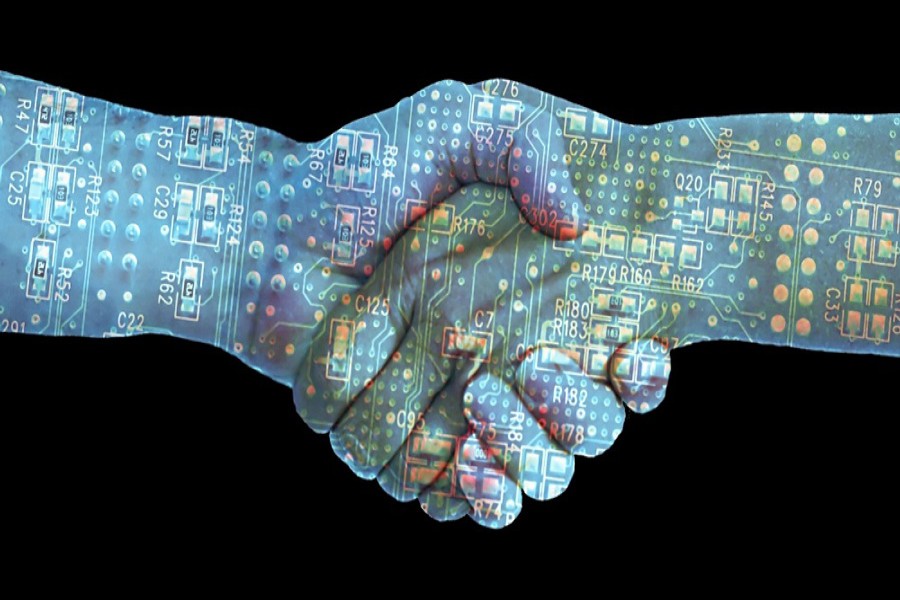For years, people want a secured way to facilitate their transaction, payment, title transfer etc. With the advancement of technology, we have seen many changes within financial industry to ensure trust. While we are still incurring a huge cost to avoid information asymmetry, we can think about a world where every bit of relevant information is accessible by related parties to complete a transaction. To ensure this mutual trust, in 2008, Satoshi Nakamoto first proposed a concept of cryptocurrency or open-source money built on a unique technology called 'Blockchain'. The main spirit behind this innovation was to enable people to act independently in financial market without compromising security.
The 'Blockchain' is regarded as the single most prolific innovation in recent times that possibly can change the way of doing business forever.
Simplifying 'Cryptocurrency' and 'Blockchain'
Just over 100 years ago people from the 'island of YAP' (Micronesia) were using the similar approach to exchange values which started before 500 AD. Though they had sustainable production of foods, they did not have any precious metal or minerals which was often used for the medium of exchange in other parts of the world. However, they invented their own money called 'RAI Stone', a block of limestone weighted more than 200 kgs. Every adult of that island knew who the owner of those stones are and how many stones each of them owns. Now, whenever a transaction occurred, all of them updated their knowledge of ownership accordingly. Blockchain is just an updated version of this economic system. Practically, as it is nearly impossible to track millions of transactions manually, we need the power of computers and Internet.
Blockchain is an automatically updated ledger system containing thousands of blocks where each block digitally records thousands of transactions executed through cryptocurrency.
Creating 'Internet of value'
Usually we send or transfer something over Internet, basically it is the digital copies. But things would be different if we want to transfer values such as money or property rights. We must make sure that, after the transfer, the sender does not have that anymore and receiver gets the complete ownership. 'Blockchain' can guarantee the smooth completion of this whole process. Upon receiving the request from a user, connected computers, which are validating the transactions, would update their internal ledger by deducting the amount from her and adding the money to the recipient. Once a pool of transactions is updated and mined in a block, it becomes permanent and there is no way to cancel or manipulate it.
'Blockchain', a universal technology, primarily evolved to solve the problems within financial industry. It is anticipated that within 20-30 years the financial service industry will be just software based. The disappearance of many business models and conversion of the financial activities into smart contracts is inevitable under this technology because of ongoing automation driven by the 'Artificial Intelligence'. Now to survive through this transition, financial institutions should move ahead of time and embrace this technology because 'Blockchain' could significantly cut down the cost involving global payment and settlement system. According to 'The FinTech 2.0 Paper' (Santander InnoVentures), using 'Blockchain' in cross-border payment settlement, securities trading and regulatory compliance could reduce banks' annual infrastructural costs up to $20 billion by 2022.
Potentially, 'Blockchain' helps to push the transaction cost of stock trading near to zero by distributing the centrally poised trust-system where investors could rely on the peer-to-peer exchange scheme. Encouraging signs like Blockchain-based securities lending solution in Santiago Stock Exchange are also evident. Moreover, as of May 2017, the Blockchain technology attracted more than $2.4 billion seed funding and is experiencing high growth riding on the wave of enthusiasm.
Possible financial revolution
Not only for large economies, 'Blockchain' could do wonder for underdeveloped countries too by ensuring inclusive economic development. It is undeniable that people from these nations have enough supply of labour, capital and even motivation but often struggled to gain proper access to those resources. Inability of mortgaging out the property because of tempered title is a common example of such. However, 'Blockchain title registry system' could make property rights more secure and convenient to access. Many countries such as Sweden, Honduras and Georgia are experimenting with this technology to transform their existing title registry system into 'Blockchain'. This multi-edge technology could also be used to achieve the financial inclusion goals by enabling people to access financial services even through a cheap smartphone. This could be a game changer and act as silver bullet to remove financial exclusion.
A better future world
Consider forming a relief fund or collecting aid in case of a disaster caused emergency. This activity is burdened with a lot of red tape barriers, creating an inefficient aid distribution system. Sometimes, prospective contributors cannot verify the authenticity of the cause and often the contribution is 'lost along the way' before reaching to its intended recipient. By placing 'Blockchain' into action, however, people can verify recipient's identity and need by removing the information gap and bring transparency into the existing aid payments distribution process.
Recently, a UK based emergency fund, 'The Start Fund' was able to disburse the humanitarian aid payment (B002 Bangladesh -landslide-- ActionAid) to affected areas within 72 hours of being alerted whereas currently it takes an average of 90 days for UN's central emergency response funds to reach an on-the-ground NGO.
So, how welcome would this 'Blockchain' technology be? Consider the transformation we experienced from 'DOS' to 'Windows OS' when we did not stay back for long to welcome the user-friendly Windows operating system. People did not inquire about the technical details behind the cursor movement or beautiful desktop screen.
With the advancement of civilisation, we have minimised power gap by industrialisation, time gap by automation and distance gap by Internet. 'Blockchain' technology has the potential to build the trust bridge by removing distrust.
The author is studying Master of Science in Economics at Portland State University, USA. He can be reached at [email protected]


